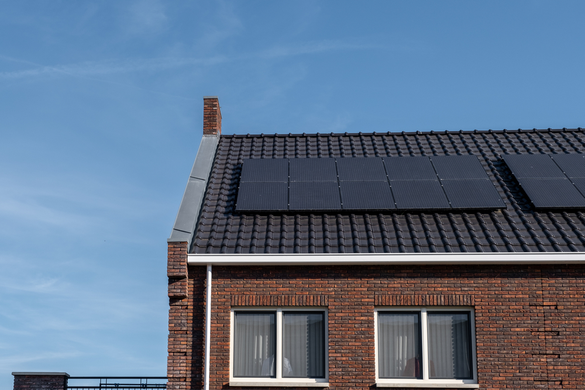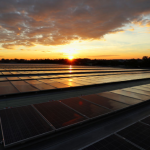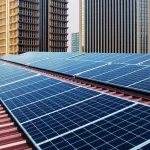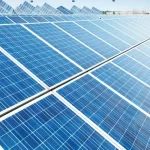
There are several important factors to understand how does a solar power purchase agreement work in NJ. Notably, solar power purchase agreements (PPAs) are popular financing options for residential and commercial solar systems. Often, businesses, nonprofit organizations, and other public entities use a PPA to finance their solar energy system as well. As a customer in the market for residential solar panels NJ, you need to understand how solar PPAs work in New Jersey. This way, you can choose a financing option that meets your budget needs. Of course, you can also start planning and preparing for your solar installation as well. Read on to learn about how does a solar power purchase agreement work in NJ.
What Is A Solar PPA?
First, business and property owners need to understand what a solar power purchase agreement NJ is. With this solar energy financing agreement, you enter a contract with a third-party owner or solar developer. Typically, they take care of your solar system design, permit applications, and installation. Then, you send a monthly payment to the PPA solar company for each kilowatt of energy you use. PPA providers usually charge significantly lower than you pay for your utility bill. Thus, you can accumulate significant savings over your solar system’s lifespan. Usually, solar PPAs can last anywhere from 10 to 25 years, depending on your contract agreement. Once your solar power purchase agreement NJ expires, you can choose to renew it, have the system removed, or purchase the solar panels at a market price.
Solar PPA Vs. Lease
Next, you need to know how solar PPA in New Jersey is different from a solar lease. With a lease, solar panel customers typically pay a fixed monthly payment to the provider. Typically, this amount is pre-determined based on your estimated annual solar energy production. Under a solar PPA, you agree to purchase the power generated by your solar electric system at a set price per kilowatt, rather than a set monthly price. Often, solar power purchase agreements also include a price escalator to account for rising yearly energy cost changes. Overall, both agreements offer similar energy cost savings. In both options, you do not own your solar system. Thus, tax credits and other incentives usually go to your solar power provider. Absolutely, know the differences between a solar PPA in NJ vs. lease before financing your system.
Down Payment
In addition, a solar power purchase agreement NJ usually has certain down payment terms. Notably, most solar PPAs offer a low to $0 down payment to finance your system. This way, you do not need to make payments until your solar system starts generating power for your home. For property owners who do not want to make a sizable investment upfront, this is a popular financing option. Importantly, some solar providers may offer $0-down financing options as well. For example, some of the best solar panel installation companies offer low down payments for their solar lease or buy solar panels options. Therefore, consider loan, lease, and solar power purchase agreement financing options when looking for a low solar installation down payment.
Cost Benefits
Moreover, a solar power purchase agreement NJ also provides customers with significant cost benefits. For example, your solar electric costs are typically significantly less expensive than your current utility bill. In addition, installation costs are usually very low, if you are required to pay any. If your solar PPA is under a fixed escalator plan, your rates may rise about 2 to 5% each year. Often, this is much lower than projected utility price increases. Additionally, you do not need to pay maintenance costs, since the owner of your solar system handles upkeep. Plus, you may have the option to pay upfront for multiple years of power, depending on your provider. Definitely, solar power purchase agreement New Jersey offers significant cost benefits for any property owner.
Contracts & Early Termination
Furthermore, you should carefully review your solar power purchase agreement NJ contract and early termination terms before signing with a developer. Typically, most PPAs offer an option to end the contract early if necessary. However, this can incur significant costs. To avoid any surprise expenses, review your early termination fees ahead of time. In addition, you should consider what happens when your solar PPA term expires. Indeed, you may want to renew the agreement for another term, purchase the system from your solar power providers New Jersey, or have it removed. Alternatively, you can also ask your solar contractor about transferring the agreement to the new homeowner if you sell your home. Usually, these terms are covered in the initial agreement. Certainly, review your contract and early termination terms before signing your solar PPA NJ.
There are several important factors to understand how does a solar power purchase agreement NJ work. First, you need to understand what a solar PPA entails in terms of solar panel ownership. Next, consider the differences between a solar power purchase agreement vs. a lease. In addition, solar PPAs usually offer little to no money down for your installation. Moreover, you can also access significant cost benefits with solar power purchase agreement. Furthermore, review your contract and early termination terms before signing your agreement. Consider these points to learn about how does a solar power purchase agreement NJ work.




